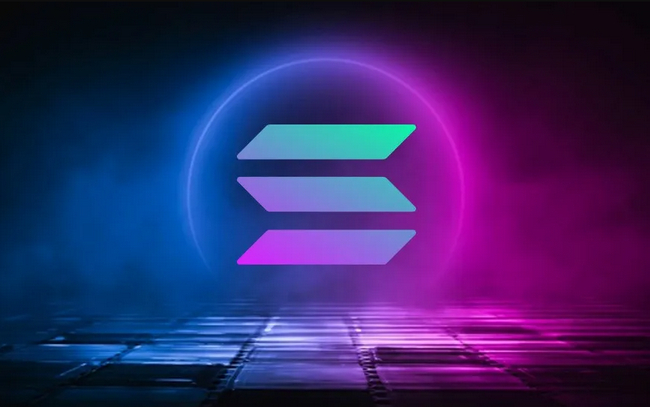-
 Bitcoin
Bitcoin $104,093.1199
0.77% -
 Ethereum
Ethereum $2,508.1404
-0.13% -
 Tether USDt
Tether USDt $1.0000
0.00% -
 XRP
XRP $2.3627
-2.50% -
 BNB
BNB $650.6914
-0.72% -
 Solana
Solana $172.3789
-0.62% -
 USDC
USDC $0.9998
-0.01% -
 Dogecoin
Dogecoin $0.2312
-3.01% -
 Cardano
Cardano $0.8091
-1.58% -
 TRON
TRON $0.2647
1.37% -
 Sui
Sui $4.0149
-0.58% -
 Chainlink
Chainlink $16.9853
-0.04% -
 Avalanche
Avalanche $24.6408
-3.09% -
 Stellar
Stellar $0.3074
-0.88% -
 Shiba Inu
Shiba Inu $0.0...01585
-1.53% -
 Hedera
Hedera $0.2059
-3.84% -
 Toncoin
Toncoin $3.3636
-1.19% -
 Hyperliquid
Hyperliquid $24.9497
-1.85% -
 Bitcoin Cash
Bitcoin Cash $409.0966
-3.20% -
 Polkadot
Polkadot $5.0928
-0.77% -
 Pi
Pi $1.1100
50.04% -
 UNUS SED LEO
UNUS SED LEO $8.3637
-2.10% -
 Litecoin
Litecoin $99.9699
-3.90% -
 Monero
Monero $334.1963
3.85% -
 Pepe
Pepe $0.0...01356
2.26% -
 Bitget Token
Bitget Token $4.8622
0.08% -
 Dai
Dai $0.9999
-0.01% -
 Ethena USDe
Ethena USDe $1.0002
-0.01% -
 Uniswap
Uniswap $6.9041
-0.32% -
 Bittensor
Bittensor $452.3936
-1.53%
how to withdraw solana from phantom
Before withdrawing Solana from Phantom, ensure your wallet is connected to the Solana blockchain and you have a valid recipient wallet address.
Nov 07, 2024 at 10:58 pm

How to Withdraw Solana from Phantom
Step 1: Preparation and Prerequisites
Before initiating a withdrawal from Phantom, ensure you have a suitable recipient wallet address to receive the withdrawn Solana. Additionally, confirm that your Phantom wallet is properly connected to the Solana blockchain.
- Installing Phantom Wallet: If you haven't already, install the Phantom wallet extension or mobile app to initiate the withdrawal process.
- Set Up Recipient Wallet: Obtain a valid Solana wallet address to which you intend to transfer the funds.
- Connect Phantom to Solana: Ensure your Phantom wallet is successfully connected to the Solana blockchain. You can verify this by checking the "Network" indicator on the Phantom wallet interface, which should display "Solana Mainnet Beta."
Step 2: Initiating the Withdrawal
Once the prerequisites are met, proceed with the withdrawal steps:
- Access Wallet Section: Navigate to the "Wallet" section of your Phantom wallet interface.
- Select Solana Token: Identify the Solana (SOL) token in your wallet balance and click on the "Withdraw" button associated with it.
- Enter Recipient Address: In the pop-up withdrawal window, carefully paste the recipient wallet address you obtained earlier.
- Specify Withdrawal Amount: Enter the desired amount of SOL you wish to withdraw from Phantom.
Step 3: Transaction Confirmation
After providing the necessary details, confirm the withdrawal transaction. Generally, it involves the following steps:
- Review Transaction Details: Thoroughly check the withdrawal amount, recipient address, and network fee associated with the transaction.
- Confirm Withdrawal: Click on the "Confirm" or "Withdraw" button to initiate the withdrawal process.
- Approve Transaction (Mobile Only): If using the Phantom mobile app, you may be prompted to approve the transaction using your device's security measures (e.g., Touch ID, Face ID).
Step 4: Monitoring Transaction Progress
Once the withdrawal transaction is initiated, you can track its progress through various methods:
- Phantom Wallet: The Phantom wallet interface will display the transaction status under the "Activity" tab.
- Solana Explorer: Visit the Solana Explorer website (https://explorer.solana.com) and search for your transaction hash to view its progress on the blockchain.
- Recipient Wallet: Keep an eye on your recipient wallet address for the incoming SOL funds.
Step 5: Transaction Completion
Upon successful completion of the transaction, the withdrawn SOL will be transferred to the specified recipient wallet address. The transaction confirmation timeframe varies depending on network conditions and can take anywhere from a few seconds to several minutes.
Disclaimer:info@kdj.com
The information provided is not trading advice. kdj.com does not assume any responsibility for any investments made based on the information provided in this article. Cryptocurrencies are highly volatile and it is highly recommended that you invest with caution after thorough research!
If you believe that the content used on this website infringes your copyright, please contact us immediately (info@kdj.com) and we will delete it promptly.
- Ethereum (ETH) Often Follows Bitcoin's Market Trends
- 2025-05-12 06:10:13
- What’s the Best Crypto to Buy Now? It’s Not BTC, ETH, or XRP — It’s Priced at Just $0.025
- 2025-05-12 06:10:13
- Can One Token Deliver AI Automation, DeFi Rewards, and 100x Potential? Introducing Unstaked ($UNSD)
- 2025-05-12 06:05:14
- Can Pepe’s rally or Litecoin’s breakout deliver better short-term gains than a daily 100M BDAG prize pool?
- 2025-05-12 06:05:14
- XRP is turning heads again following an impressive show of resilience
- 2025-05-12 06:00:22
- As Momentum Fades From Pi Coin, Investors Are Turning Their Attention To Lightchain AI
- 2025-05-12 06:00:22
Related knowledge

What is Ethereum’s Slashing mechanism and how to punish malicious behavior?
Feb 20,2025 at 03:08am
Key PointsOverview of slashingDifferent types of slashing in EthereumIncentives and consequences of slashingIdentifying and reporting slashed validatorsOngoing discussions and potential improvementsEthereum's Slashing Mechanism: Punishing Malicious BehaviorEthereum's slashing mechanism is an essential tool for ensuring network security and punishing mal...

What is the verifier node of Ethereum and how to become a verifier?
Feb 19,2025 at 06:00pm
The Verifier Node of Ethereum: A Comprehensive GuideKey Points:What is a Verifier Node?How to Become a Verifier NodeResponsibilities and Rewards of a Verifier NodeMinimum Requirements for Becoming a Verifier NodePotential Difficulties in Running a Verifier Node1. What is a Verifier Node?A Verifier Node is an independent entity on the Ethereum network th...

What is Ethereum’s staking, and how to participate and earn money?
Feb 19,2025 at 04:37pm
Key Points:Understanding Ethereum's Staking MechanismSteps to Participate in StakingBenefits and Rewards of StakingSecurity and Risk ConsiderationsTechnical Requirements and Hardware OptionsPotential Challenges and Troubleshooting TipsFAQs on Ethereum StakingWhat is Ethereum's Staking?Proof-of-Stake (PoS) is a consensus mechanism used in blockchain netw...

What is Ethereum’s DAO (Decentralized Autonomous Organization) and how does it work?
Feb 20,2025 at 03:12am
Key PointsDefinition and Structure of a DAOGovernance and Decision-Making in DAOsBenefits and Use Cases of DAOsChallenges and Limitations of DAOsWhat is Ethereum's DAO (Decentralized Autonomous Organization) and How Does It Work?Definition and Structure of a DAOA Decentralized Autonomous Organization (DAO) is an innovative governance and management fram...

What is Ethereum's multi-signature wallet and how to improve security?
Feb 20,2025 at 02:18pm
Key Points:Understanding the Concept of a Multi-Signature WalletBenefits and Drawbacks of Multisig WalletsRequirements for Setting Up a Multisig WalletStep-by-Step Guide to Generating a Multisig WalletImplementing Strategies for Enhanced Security1. Understanding the Concept of a Multi-Signature WalletA multi-signature (multisig) wallet in the Ethereum e...

What is Ethereum's oracle and how to provide data for smart contracts?
Feb 21,2025 at 01:30am
Key Points:Understanding the concept of oracles in EthereumExploring different types of oraclesDetailed guide on how to provide data for smart contractsAddressing potential challenges and considerationsWhat is Ethereum's Oracle?Oracles are crucial components in the Ethereum ecosystem, enabling smart contracts to access real-world data and off-chain even...

What is Ethereum’s Slashing mechanism and how to punish malicious behavior?
Feb 20,2025 at 03:08am
Key PointsOverview of slashingDifferent types of slashing in EthereumIncentives and consequences of slashingIdentifying and reporting slashed validatorsOngoing discussions and potential improvementsEthereum's Slashing Mechanism: Punishing Malicious BehaviorEthereum's slashing mechanism is an essential tool for ensuring network security and punishing mal...

What is the verifier node of Ethereum and how to become a verifier?
Feb 19,2025 at 06:00pm
The Verifier Node of Ethereum: A Comprehensive GuideKey Points:What is a Verifier Node?How to Become a Verifier NodeResponsibilities and Rewards of a Verifier NodeMinimum Requirements for Becoming a Verifier NodePotential Difficulties in Running a Verifier Node1. What is a Verifier Node?A Verifier Node is an independent entity on the Ethereum network th...

What is Ethereum’s staking, and how to participate and earn money?
Feb 19,2025 at 04:37pm
Key Points:Understanding Ethereum's Staking MechanismSteps to Participate in StakingBenefits and Rewards of StakingSecurity and Risk ConsiderationsTechnical Requirements and Hardware OptionsPotential Challenges and Troubleshooting TipsFAQs on Ethereum StakingWhat is Ethereum's Staking?Proof-of-Stake (PoS) is a consensus mechanism used in blockchain netw...

What is Ethereum’s DAO (Decentralized Autonomous Organization) and how does it work?
Feb 20,2025 at 03:12am
Key PointsDefinition and Structure of a DAOGovernance and Decision-Making in DAOsBenefits and Use Cases of DAOsChallenges and Limitations of DAOsWhat is Ethereum's DAO (Decentralized Autonomous Organization) and How Does It Work?Definition and Structure of a DAOA Decentralized Autonomous Organization (DAO) is an innovative governance and management fram...

What is Ethereum's multi-signature wallet and how to improve security?
Feb 20,2025 at 02:18pm
Key Points:Understanding the Concept of a Multi-Signature WalletBenefits and Drawbacks of Multisig WalletsRequirements for Setting Up a Multisig WalletStep-by-Step Guide to Generating a Multisig WalletImplementing Strategies for Enhanced Security1. Understanding the Concept of a Multi-Signature WalletA multi-signature (multisig) wallet in the Ethereum e...

What is Ethereum's oracle and how to provide data for smart contracts?
Feb 21,2025 at 01:30am
Key Points:Understanding the concept of oracles in EthereumExploring different types of oraclesDetailed guide on how to provide data for smart contractsAddressing potential challenges and considerationsWhat is Ethereum's Oracle?Oracles are crucial components in the Ethereum ecosystem, enabling smart contracts to access real-world data and off-chain even...
See all articles





















































































